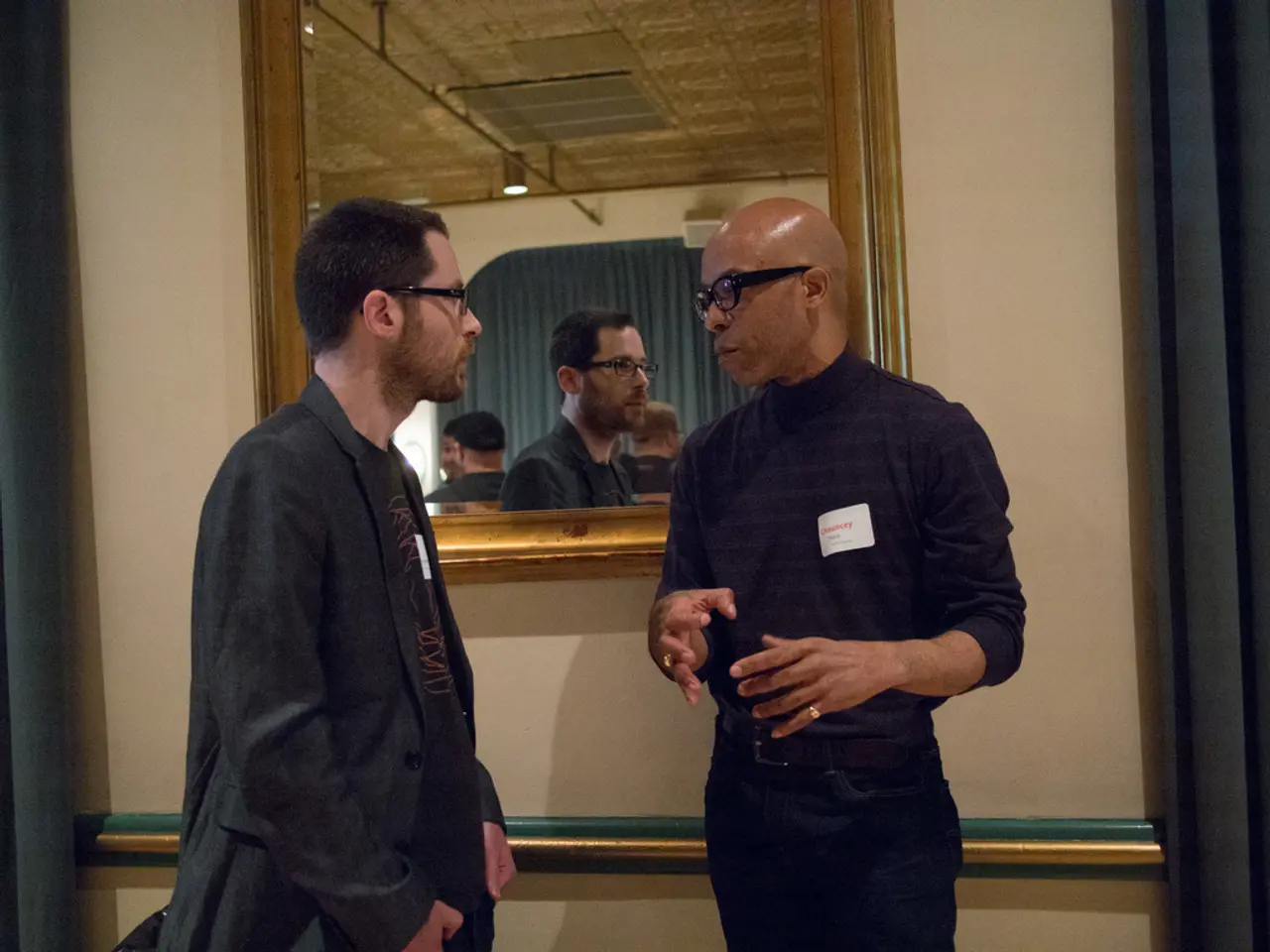Technology Giant Google and Howard University Collaborate to Aid Artificial Intelligence in Identifying Black American Vernacular Speech
**Project Elevate Black Voices: A New Initiative to Improve AI's Understanding of African American English**
Project Elevate Black Voices, a multi-year research initiative, is set to address long-standing biases in AI speech recognition technologies. Co-designed and led by Black researchers, primarily from Howard University and Google Research, the project aims to build a high-quality dataset of African American English (AAE) speech[1][2][3].
The initiative seeks to enhance AI's ability to recognise, respect, and respond to the full diversity of AAE, rather than "edited, flattened, or code-switched" versions of it[1]. The project's mission is to make technology more useful and accessible, allowing more users to express themselves authentically when using smart devices[4].
Researchers collected over 600 hours of data from users of different AAE dialects from 32 states. This data was gathered to address the challenge of in-product AAE, which is difficult to leverage due to code-switching[1][2][3].
Historically, voice assistants and speech recognition systems have misinterpreted commands or yielded incorrect results when faced with AAE, often forcing Black users to modify their natural speech to be understood by these technologies[1][2][3].
The project takes a community-first approach, prioritising trust, privacy, and data ownership. The dataset, known as the Howard African American English Dataset 1.0, will initially be made available exclusively to researchers and institutions within historically Black colleges and universities[2]. This ensures that the data is employed in ways that reflect the interests and needs of marginalized communities.
Google can use the dataset to enhance its products, ensuring that its tools are more effective for a broader range of users. Google Research's co-principal investigator, Courtney Heldreth, Ph.D., stated that the project's mission is to make technology more useful and accessible[4].
Gloria Washington, Ph.D., a Howard University researcher, is a co-principal investigator of Project Elevate Black Voices. Washington stated that voice assistant technology should understand different dialects of AAE to serve all users[5].
AAE is a rich language deeply rooted in history and culture. Researchers traveled across the United States to document the dialects and diction commonly used in Black communities[1][2][3].
The project represents a critical step toward making automatic speech recognition (ASR) systems more equitable and effective for Black users, thereby improving inclusivity and accuracy in speech-driven technologies for Black communities and others who use these dialects[1][4][5].
References: [1] Google Research. (2021). Project Elevate Black Voices. Retrieved from https://research.google/projects/elevate-black-voices/ [2] Howard University. (2021). Project Elevate Black Voices. Retrieved from https://www.howard.edu/research/centers-institutes/elevate-black-voices/ [3] Washington, G., & Heldreth, C. (2021). Project Elevate Black Voices: A Multi-Year Research Initiative to Build a High-Quality Dataset of African American English Speech. Retrieved from https://arxiv.org/abs/2109.05115 [4] Google. (2021). Making AI More Accessible for Black Communities. Retrieved from https://ai.google/research/products/elevate-black-voices [5] The New York Times. (2021). Google Partners with Howard University to Build a Database of African American English. Retrieved from https://www.nytimes.com/2021/09/23/technology/google-howard-university-african-american-english.html
The Project Elevate Black Voices, led by Black researchers including Gloria Washington from Howard University and Courtney Heldreth from Google Research, aims to enhance the world of technology, specifically artificial-intelligence, by building a high-quality dataset of African American English (AAE) speech to improve AI's understanding and recognition of AAE. This initiative seeks to make technology more useful and accessible, allowing users to express themselves authentically, rather than modifying their natural speech, thus bridging the gap in the world of technology and the rich language and culture of African American English.




